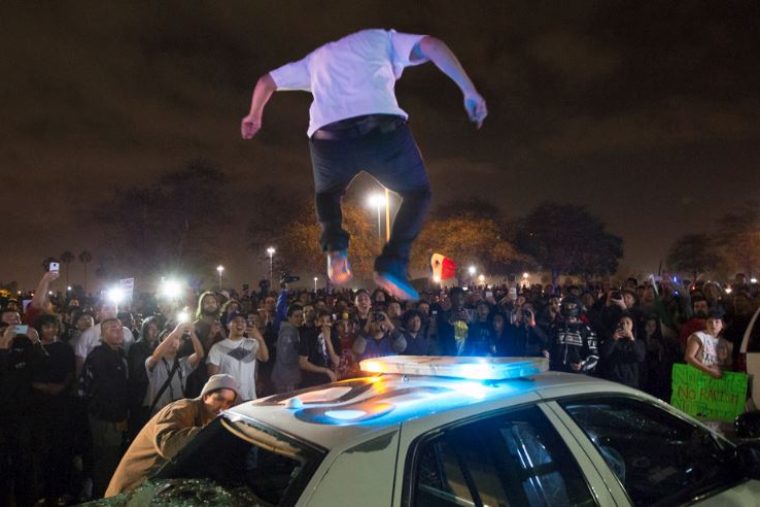The anti-Trump demonstrations we now see in the streets are not just examples of the immaturity of many modern secular liberals, who seem to think that everyone else is somehow obligated to agree with them. They’re also a symptom of the distorted influence politics now exercises over our culture.
But in addition to being a symptom of our culture, the dominance of politics in every aspect of life is also a consequence of liberalism itself.
The tendency of liberalism has always been to politicize everything. Thanks to liberalism, we have a politicized media that has abandoned journalistic standards in a misguided attempt to engineer who gets elected; a politicized education system in which whole disciplines—English, history, and even science—have been enrolled in the service of ideological goals; and even a government that, in addition to the politics already inherent in it, has been made subservient to special-interest politics.
Russell Kirk, the father of modern conservatism, had a name for it: ideology. Although we often use the word in a generic sense to refer to someone’s specific political orientation, Kirk’s definition was more specific (and useful).
An ideology, as Kirk defines it, is a political religion.
Ideology takes politics from its more natural subordinate position in cultural life and exalts it to the highest position. It redefines truth as political manipulation, it turns ethics into political utility, and it re-imagines political success as earthly salvation—and political failure as apocalypse.
The political philosopher Eric Voegelin called it “immanentizing the Eschaton,” an exotic expression which, when properly parsed, just means viewing this world as all there is, and, therefore, the ultimate thing.
by Martin Cothran



